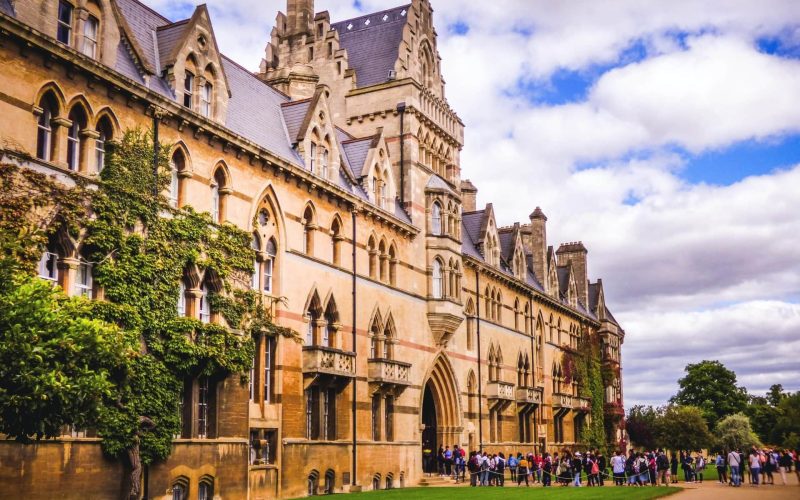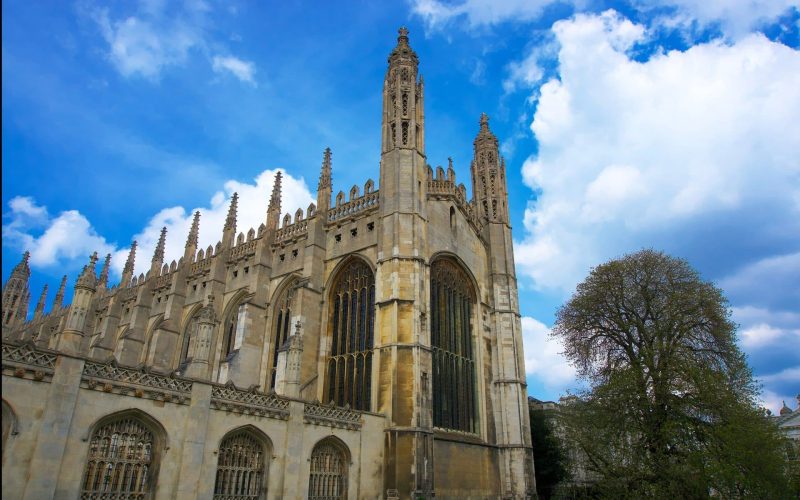Universities
The Oxbridge System
As two of the oldest and most venerable higher education and research institutions in the world, Oxford and Cambridge both consistently feature amongst the top five in global university rankings. They set the international standard for academic excellence, and each boasts an illustrious array of alumni: 28 of Britain’s Prime Ministers to date have been Oxford graduates and over 120 Nobel Laureates have been affiliated with the University of Cambridge. It is notoriously difficult to win a place to study at Oxbridge – and for good reason. A great deal is expected of undergraduates at these universities: at least one essay and 40 hours of independent study per week, if not more – a workload that far surpasses that of other universities in the UK. Consequently, Oxford and Cambridge have a rigorous set of entrance requirements to ensure that those are accepted onto their courses are up to the challenge: as well as demanding top grades at A-level (or equivalent), both universities require their applicants to sit entrance exams and attend interviews before offers are made.
Given Oxford and Cambridge have such a difficult application process and demand so much of their undergraduates, you may wonder why these universities are worth it. Studying at Oxbridge gives you the opportunity to access world-class resources across libraries and labs, and to be taught by the leading academics in your field. The tutorial system, in particular, offers an exceptional level of personalised teaching. Consisting normally of just one or two students, tutorials allow for an exhilarating exchange of ideas and free-flow of conversation, unparalleled by any other higher-education teaching model. The emphasis that this system places upon independent thought and the work ethic it instils are looked on favourably by prospective employers, and Oxbridge graduates are highly coveted in the job market. 91% of Cambridge graduates find themselves in full-time work or study just 15 months after graduating, and the average salary of an Oxford graduate is £41 600 – well above the national average of £24 000. Both universities offer an excellent careers service: top employers often run recruitment sessions at the colleges, there are multiple networking opportunities provided by alumni, and exclusive internships are offered just to students of Oxford and Cambridge.
Beyond the academic opportunities and job prospects, studying at Oxford or Cambridge affords other benefits. Both universities are organised around a collegiate system, and students live and study within a readymade social and academic community. Many new students find that this environment is more supportive and welcoming than Freshers’ halls at other universities, and the accommodation offered by the colleges is often cheaper than private rentals. Some colleges, especially at Cambridge, offer their students accommodation for the duration of their course, meaning students never have to deal with the additional costs and pressures of renting.
Studying at Oxford or Cambridge promises a plethora of exciting experiences and opportunities. But the application process can be daunting and stressful, especially if your school does not offer much in the way of support. Their UCAS application deadline is 15th October each year, much earlier than for other undergraduate courses in the UK. In addition to sending off your personal statement by this date, you may need to submit samples of written work, check what entrance exams are required for your course, and ensure that you are registered at a test centre so that you are ready to take these in early November. Interviews generally take place at the start of December, and require further preparation – the interviewing tutors will expect you to prove your subject knowledge and enthusiasm beyond what you have written in your personal statement!
It is recommended that you start preparing your application the summer before it is due. This is the time where you want to be finalising your choice of course and selecting the best college for your application. From this early stage, Optimal can help to smooth and simplify the process. We offer you clear and detailed information on your course options and narrow down the list of colleges according to your preferences, so that you can make decisions that maximise your chances of success and happiness. As your application progresses, Optimal continues to guide you, whether you need help preparing for the entrance exams or for the interviews.
View our course summaries for Oxford and Cambridge, and gain valuable intel through our interview tips, question and insider information.
Start Your Oxbridge Journey Now
Designed with the sole focus of increasing your chances of an offer
We focus on the research, so you can enjoy the best part – making a well-informed choice. Tell us what you want from your university experience using the Optimizer’s filters, and we will provide you with your personalized shortlist of the top 5 colleges where you have the best chance of receiving an offer. Our proprietary tech combines current data, predictive modelling, insider information and trending insights to give you the greatest chance of getting into the college that is right for you.


